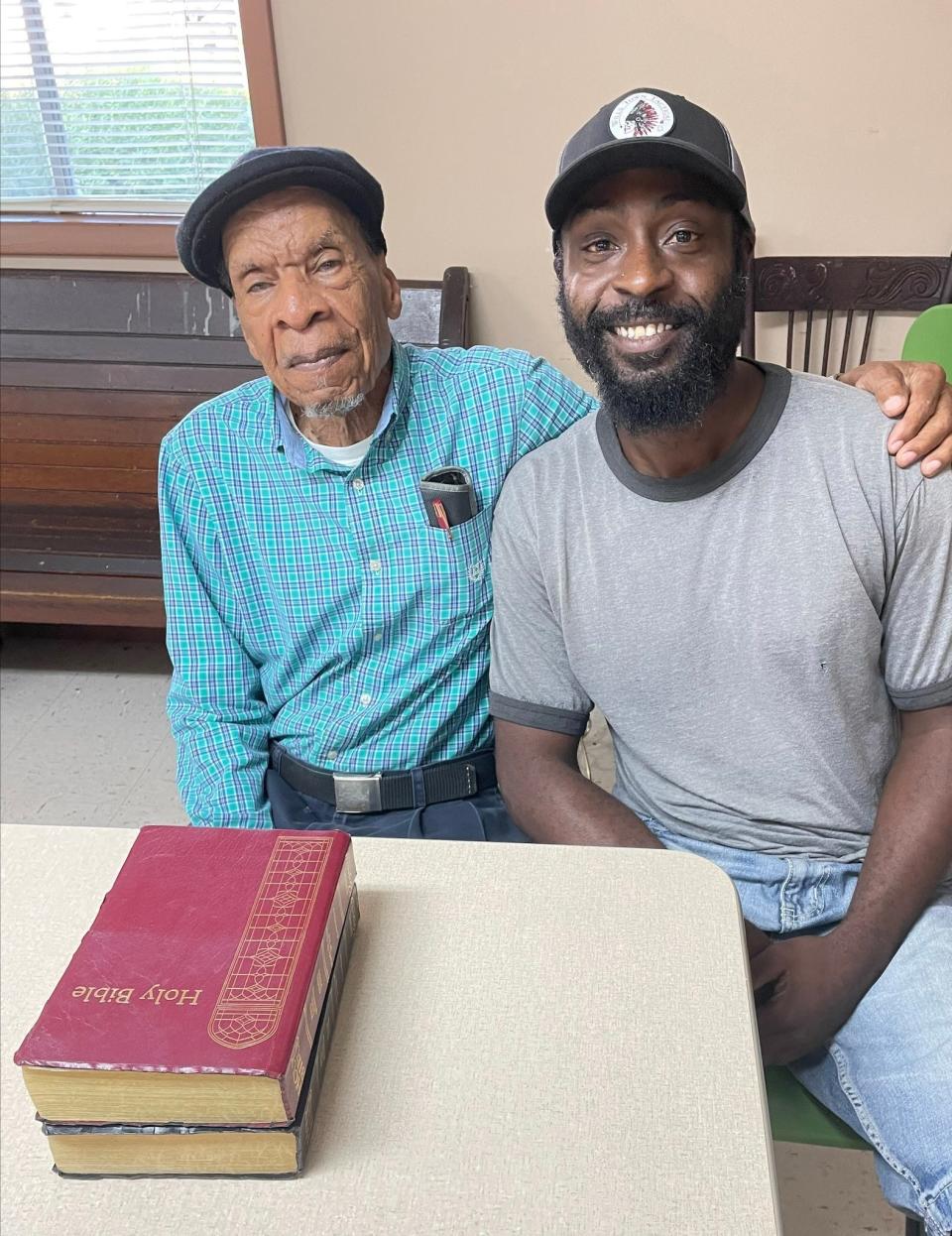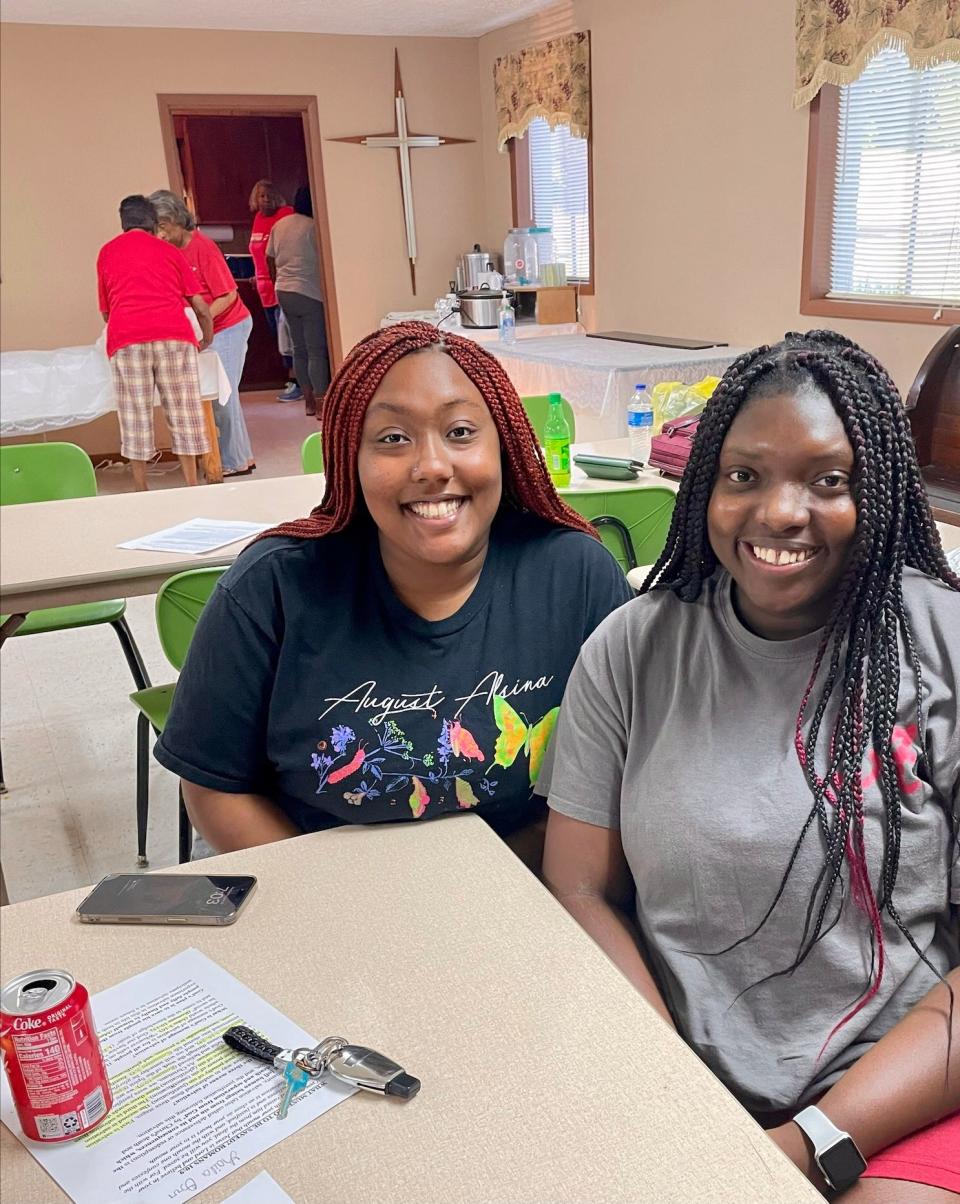Collinsville native determined to pass on stories about town's Black history
COLLINSVILLE, Alabama — Collinsville native Timothy “Cas” Smith grew up hearing stories from his uncle and Owen “O.J.” Ford about the Black school they attended in his hometown. Now, with children of his own, Smith said he is determined to provide a way for younger generations to hear the same stories he did.
Smith stood before the City Council on June 5 and asked Mayor Johnny Traffanstedt for permission to organize purchasing a historical marker to detail the history of Collinsville’s Black churches and school.
He took on the task of organizing funds, writing copy for the marker, and determining its location. In the coming weeks, Smith said he intends to host various fund-raising efforts to raise the nearly $2,000 it takes to purchase a marker.
“I have two kids — a daughter who’s 10 and a son who’ll be 13 in September — and they see these buildings around here, the old schools, and they didn’t even know what they were,” he said. “So, it kind of inspired me to get a historical marker there.”
More: Montgomery Advertiser partners with Auburn University program to share more rural stories

Collins Chapel United Methodist Church and Pleasant Grove Baptist Church on Church Avenue are the backbone of the Black community in Collinsville. Many members attend both churches. Gregory High School started in churches before the first school building was built.
During the rebuilding processes, school was once again held in churches after the original and next school building burned down. In the early 1960s, the DeKalb County School System constructed a public school for Black children with classrooms and a gym. Many former students refer to this final home for Gregory as the “new school”.
Many older Black residents in Collinsville attended Gregory High School before integration in 1968. They remember Gregory fondly and the unique success of the school.
O.J. Ford and his wife, Frankie Ford, met while attending Miles College in Fairfield, Alabama. Ford, originally from Birmingham, followed his wife back to Collinsville to teach at the very school she graduated from.
Current interim pastor at Collins United Methodist Church, Ford taught math, science, and social studies at Gregory High School before it closed.
“There were many wonderful things that happened in that school. Before the school closed, we had over 100 and some trophies that we won for everything from football to basketball, music, speech, oratorical contests, I mean you name it,” Ford said.

Because the school was within walking distance of most of its students, the teachers and students belonged to the same nearby churches. Ford attributes the specialness of Gregory to the relationship between the teachers, students and parents.
“Whenever we had a discipline problem, we came to the parents, and they understood, so they gave us instructions on what to do, how to deal with those problems,” Ford recalled.
His wife, Frankie, experienced firsthand the closeness of Gregory. “I want the school to be remembered for its heritage, for its togetherness, and to let everyone know that there once was a Black school in Collinsville,” she said.
Julia Orr, a former student of Ford, said she wants Gregory to be remembered for the students who graduated and went on to help the community of Collinsville. “I like the education that Ford instilled in me because I’m a better person for what I learned from him and all the Black teachers at Gregory,” Orr said.
Granddaughters of Julia Orr, Laila Orr and Destini Jones, are part of the future generation that motivates Smith and his elders to work to preserve local Black history.
“We know everybody else’s history, so they should get to know ours. I think it’s important to know the history, just to see how far they’ve come and how things have changed,” said Laila.
The girls explained that much of their knowledge about Black history came directly from stories from their grandmother. They said the historical marker would be a way for young people who may not have had those lessons to learn about the past.
According to Smith, the work will be worth it to be able to give back to the community that raised him. “Collinsville is home to me. I don't know how to explain it. It's just a different feeling. This will always be home,” he said.
Payton Davis, a Living Democracy student at Auburn University, is living and learning this summer in Collinsville, Alabama, as a Jean O'Connor Snyder Intern with the David Mathews Center for Civic Life. The nonprofit program, coordinated by the Caroline Marshall Draughon Center for the Arts and Humanities in the College of Liberal Arts, prepares undergraduate college students for civic life through living-learning experiences in the summer.
This article originally appeared on Montgomery Advertiser: Man resolves to pass on stories about Collinsville's Black history

